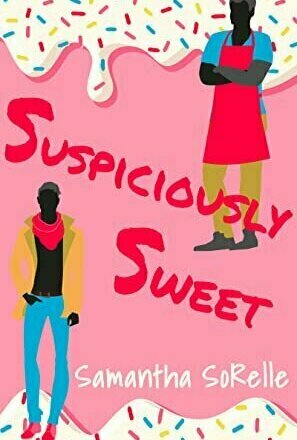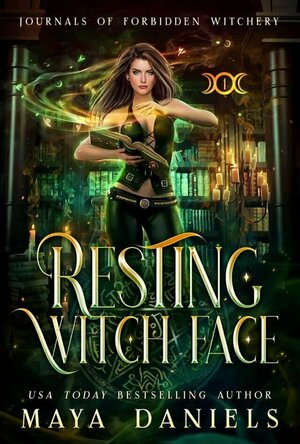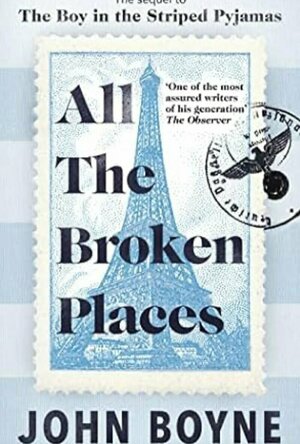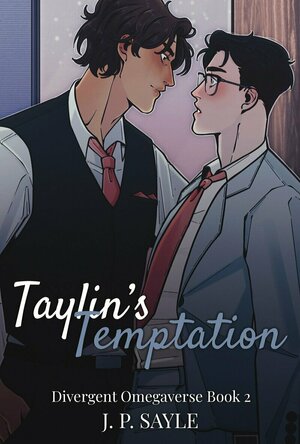Search
Search results

OffMaps 2 · Offline Maps for Travelers
Navigation and Travel
App
"A Cheaper Way to Navigate Abroad, No Costly Data-Roaming Required", NYT GadgetWise Blog "OffMaps 2...
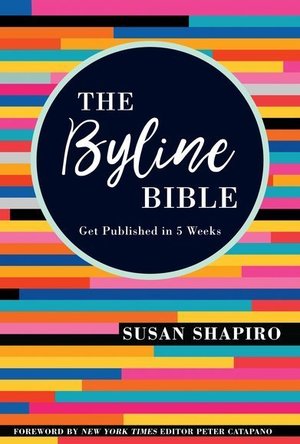
The Byline Bible
Book
Newspaper, magazine, and web editors are desperate for new voices and anyone, in any field, can...
Lyndsey Gollogly (2893 KP) rated Scarred Warrior (Dark Warrior Alliance book 7) in Books
Oct 20, 2021
173 of 250
Kindle
Scarred Warrior ( Dark Warrior Alliance book 7)
By Brenda Trim and Tami Julka
Once read a review will be written via Smashbomb and link posted in comments
Being a Dark Warrior and protecting others has been the only focus in Gerrick Haele's life for centuries, until he receives the shock of his life when one of the females he rescues from the archdemon's clutches ignites an arousal that hints at her being his Fated Mate. Problem is, Gerrick's Fated Mate was murdered four hundred years earlier and you are only ever given one mate in a lifetime. Questions of Dark magic and deception carry him down a path involving time travel, serums and fights to the death. Can he set aside his doubt and be the male Shae needs him to be, or will his past come back to haunt him and history repeat itself? Shae Mitchell has spent the last seven months being tormented, raped and tortured by vile archdemons and just wants her suffering to end. She is on the verge of giving up completely when Gerrick sweeps in to rescue her. Her relief at being liberated is short-lived when she realizes the demons have sunk their claws far deeper than the scars on her neck. As she fights to rid her mind of the archdemon's influence, she discovers that the explosive heat she shares with the sexy Dark Warrior threatens to consume her whole.
These get better and better each book! This was Gerricks and Shaes story which was just so well put together. We had the trapped females finally free from cages as well as a fated pair come together. Some catch ups with familiar faces and some exciting news for the king and queen. I have to say this every book I just love Mack more and more. One demon down and one to go before they unleash all hell. Really enjoyed this one.
Kindle
Scarred Warrior ( Dark Warrior Alliance book 7)
By Brenda Trim and Tami Julka
Once read a review will be written via Smashbomb and link posted in comments
Being a Dark Warrior and protecting others has been the only focus in Gerrick Haele's life for centuries, until he receives the shock of his life when one of the females he rescues from the archdemon's clutches ignites an arousal that hints at her being his Fated Mate. Problem is, Gerrick's Fated Mate was murdered four hundred years earlier and you are only ever given one mate in a lifetime. Questions of Dark magic and deception carry him down a path involving time travel, serums and fights to the death. Can he set aside his doubt and be the male Shae needs him to be, or will his past come back to haunt him and history repeat itself? Shae Mitchell has spent the last seven months being tormented, raped and tortured by vile archdemons and just wants her suffering to end. She is on the verge of giving up completely when Gerrick sweeps in to rescue her. Her relief at being liberated is short-lived when she realizes the demons have sunk their claws far deeper than the scars on her neck. As she fights to rid her mind of the archdemon's influence, she discovers that the explosive heat she shares with the sexy Dark Warrior threatens to consume her whole.
These get better and better each book! This was Gerricks and Shaes story which was just so well put together. We had the trapped females finally free from cages as well as a fated pair come together. Some catch ups with familiar faces and some exciting news for the king and queen. I have to say this every book I just love Mack more and more. One demon down and one to go before they unleash all hell. Really enjoyed this one.
Debbiereadsbook (1650 KP) rated Suspiciously Sweet in Books
Feb 23, 2022
so sweet but sexy too! Loved it!
Independent reviewer for Archaeolibrarian, I was gifted my copy of this book.
What this book is, right, is a whole lotta weight gain, that's what it is! And I bloody loved it!
Grumpy meets sweet, Owen meets Trevor and both kinda fall into a friendship followed by a relationship. But both have secrets, and either one could break the heart of the other.
I think I gained ten pounds reading this, I really did!
It's so freaking sweet, and sexy but also quite emotional in a way I wasn't expecting for such a short book! It's only 137 pages, but it packs quite the sugar rush!
I loved that Trevor knows he can make or break a business, and for some reason, just walking into Nana O'Neill's bakery makes him want to save this one, on a level he never knew could exist. Throw in Owen and Trevor is in heaven. But Trevor wants more with Owen, and it takes time for them to get down and dirty, and I loved being made to wait for the main event!
Trevor creeps under Owen's skin, I think. It's not quite so instant, the things Owen wants creep up on him, and I loved watching the big man fall, and fall HARD!
The food descriptions are outta this world, and now I want to eat everything described here. ALL the things! I'll be so ill but hey, I don't freaking care!
I've not read anything else by this author, but my TBR pile just grew a bit bigger. This is what I love most about reviewing, finding new-to-me authors, with back lists for me to feast on!
A delicious, so incredibly too-stinking-cute and so much with the warm-and-fuzzies book, I've not had in a long ass time!
5 full and sweet stars
*same worded review will appear elsewhere
What this book is, right, is a whole lotta weight gain, that's what it is! And I bloody loved it!
Grumpy meets sweet, Owen meets Trevor and both kinda fall into a friendship followed by a relationship. But both have secrets, and either one could break the heart of the other.
I think I gained ten pounds reading this, I really did!
It's so freaking sweet, and sexy but also quite emotional in a way I wasn't expecting for such a short book! It's only 137 pages, but it packs quite the sugar rush!
I loved that Trevor knows he can make or break a business, and for some reason, just walking into Nana O'Neill's bakery makes him want to save this one, on a level he never knew could exist. Throw in Owen and Trevor is in heaven. But Trevor wants more with Owen, and it takes time for them to get down and dirty, and I loved being made to wait for the main event!
Trevor creeps under Owen's skin, I think. It's not quite so instant, the things Owen wants creep up on him, and I loved watching the big man fall, and fall HARD!
The food descriptions are outta this world, and now I want to eat everything described here. ALL the things! I'll be so ill but hey, I don't freaking care!
I've not read anything else by this author, but my TBR pile just grew a bit bigger. This is what I love most about reviewing, finding new-to-me authors, with back lists for me to feast on!
A delicious, so incredibly too-stinking-cute and so much with the warm-and-fuzzies book, I've not had in a long ass time!
5 full and sweet stars
*same worded review will appear elsewhere
Merissa (13749 KP) rated Resting Witch Face (Journals of Forbidden Witchery #1) in Books
Jun 4, 2021 (Updated Jul 18, 2023)
RESTING WITCH FACE is the first book in the Journals of Forbidden Witchery series and we start a whole new urban fantasy. Hazel is our main character, a witch with no powers, otherwise known as a dud. This doesn't mean she's weak though. She's trained herself, and the enforcers in her coven, and can fight demons without powers. But when her grandmother (who coincidentally runs the coven) starts hiding her from view, Hazel sniffs out a secret. With her best friend Sissily, she needs to figure out what's going on before she is cast out for good.
This was a fantastic start to the series! Hazel is a smart-alec, with a sassy attitude, a short temper, and is fuelled by coffee. There is lots to like about her, especially her grumpiness which hides a lot of things. Sissily is a good friend, who has been there for her throughout but falters a bit at the end. I wasn't too keen on that so I'm hoping she pulls it together. And what would a Maya Daniels book be without a buff hero to fall back on?! River comes with his own secrets and I look forward to learning more about him.
I thought the pacing was perfect in this book. It was fast and full of action but without being frantic. It gave me time to enjoy the story, to immerse myself in it, enjoy Hazel's past, and wonder about her future. Alex and Amber are fantastic supporting characters, and I can't wait to learn more about Shadowborn as I'm sure he's dodgy. No reason, just because! 😉
With secrets aplenty, this is a brilliant start to a series I can't wait to continue. Absolutely recommended by me.
** same worded review will appear elsewhere **
* A copy of this book was provided to me with no requirements for a review. I voluntarily read this book, and the comments here are my honest opinion. *
Merissa
Archaeolibrarian - I Dig Good Books!
Jun 4, 2021
This was a fantastic start to the series! Hazel is a smart-alec, with a sassy attitude, a short temper, and is fuelled by coffee. There is lots to like about her, especially her grumpiness which hides a lot of things. Sissily is a good friend, who has been there for her throughout but falters a bit at the end. I wasn't too keen on that so I'm hoping she pulls it together. And what would a Maya Daniels book be without a buff hero to fall back on?! River comes with his own secrets and I look forward to learning more about him.
I thought the pacing was perfect in this book. It was fast and full of action but without being frantic. It gave me time to enjoy the story, to immerse myself in it, enjoy Hazel's past, and wonder about her future. Alex and Amber are fantastic supporting characters, and I can't wait to learn more about Shadowborn as I'm sure he's dodgy. No reason, just because! 😉
With secrets aplenty, this is a brilliant start to a series I can't wait to continue. Absolutely recommended by me.
** same worded review will appear elsewhere **
* A copy of this book was provided to me with no requirements for a review. I voluntarily read this book, and the comments here are my honest opinion. *
Merissa
Archaeolibrarian - I Dig Good Books!
Jun 4, 2021
ClareR (6062 KP) rated All the Broken Places in Books
Nov 4, 2023
Gretel Fernsby has a terrible secret that she’d rather others didn’t know. If you’ve read The Boy in the Striped Pyjamas, you’ll recognise the name: Gretel is the daughter of the camp Commandant of Auschwitz.
In short chapters, flashing between the past and the present, we learn about 91 year old Gretel’s past, and what happened when she and her mother escaped Germany.
Gretel is very well off, living in an expensive block of very large flats in central London. She doesn’t really have any friends, and seems to keep her true self from everyone including her son.
She is confronted with the memory of her younger brother, Bruno, when a boy of his age moves in to the downstairs flat. She realises that his father is violent, and his mother is abused. Gretel can’t let this kind of violence happen again.
The characters in this were superb. Whilst the first book had its problems with historical accuracy, I feel that this book centred more around trauma, guilt and shame. Gretel carries all of these things around with her forever. She feels culpable for what happened in the camp - even though she was both a child and female. In retrospect, she is able to see what was wrong with the nazi regime, but at the time would have been brainwashed. She wouldn’t have known a time where Jews and other “undesirable” minorities would have been treated any differently. The wonder is that she went on to learn that this was wrong. The trauma that she carries with her from the death of her brother, learning about what her father was guilty of, and occurrences in Paris, is lifelong.
From Gretel’s life experiences to those of her downstairs neighbour, everything is handled with compassion and tact. Again, it’s not perfect, but then neither are humans. And that is what this book shows above all: that we can learn from our mistakes if we are willing to do so.
In short chapters, flashing between the past and the present, we learn about 91 year old Gretel’s past, and what happened when she and her mother escaped Germany.
Gretel is very well off, living in an expensive block of very large flats in central London. She doesn’t really have any friends, and seems to keep her true self from everyone including her son.
She is confronted with the memory of her younger brother, Bruno, when a boy of his age moves in to the downstairs flat. She realises that his father is violent, and his mother is abused. Gretel can’t let this kind of violence happen again.
The characters in this were superb. Whilst the first book had its problems with historical accuracy, I feel that this book centred more around trauma, guilt and shame. Gretel carries all of these things around with her forever. She feels culpable for what happened in the camp - even though she was both a child and female. In retrospect, she is able to see what was wrong with the nazi regime, but at the time would have been brainwashed. She wouldn’t have known a time where Jews and other “undesirable” minorities would have been treated any differently. The wonder is that she went on to learn that this was wrong. The trauma that she carries with her from the death of her brother, learning about what her father was guilty of, and occurrences in Paris, is lifelong.
From Gretel’s life experiences to those of her downstairs neighbour, everything is handled with compassion and tact. Again, it’s not perfect, but then neither are humans. And that is what this book shows above all: that we can learn from our mistakes if we are willing to do so.
Debbiereadsbook (1650 KP) rated Demon's Obsession (Obsessions #1) in Books
Oct 9, 2024
Silas' tre makes for some fun times!
Independent reviewer for Archaeolibrarian, I was gifted my copy of this book.
This is the start of a new series by these 2 authors, and I have to say, very different from the Tangled Tentacles and I loved that it is!
Silas goes to town once a week to sing. He can only manage short times away from his tree and the forest, being a dryad. Dakata is a demon, living in the human world, managing music acts. Dakata's demon reacts to Silas, making Dak aware that his Blissful One is near. But others are against the mating. And danger looms.
I just gotta mention the cover! When I got my copy, it didn't have a cover, and I only saw the cover AFTER I read it. It fits, perfectly! The scene it's taken from? Comes over exactly like the cover! Love it!!
I loved this, I really did. It's a bit different, with Silas being a dryad. He is bonded to a tree, and cannot be far from it. The tree talks to Silas, but also is able to move freely. Which makes for some fun times, especially when Dak is near and they get down and dirty! Phew!! Dak's demon talks to the tree too.
I liked that the danger was simple jealousy. No complicated plot with twist and turns to follow. I even liked the way Dak's demon dealt with that threat.
So, I have a couple of questions!
Will Wanda get a book? I mean, she has three trees she is bonded to, will she get three partners?
Will Dougal and George get stories too?? I loved these two and hope they do.
And just who is the goat, in dak's apartment that kicks Merihem in the nuts??!!
It's a little bit out there, but Sayle is becoming a master at the out there troupe!
Loved it, can't wait for more!
5 full and shiny stars.
*same worded review will appear elsewhere
This is the start of a new series by these 2 authors, and I have to say, very different from the Tangled Tentacles and I loved that it is!
Silas goes to town once a week to sing. He can only manage short times away from his tree and the forest, being a dryad. Dakata is a demon, living in the human world, managing music acts. Dakata's demon reacts to Silas, making Dak aware that his Blissful One is near. But others are against the mating. And danger looms.
I just gotta mention the cover! When I got my copy, it didn't have a cover, and I only saw the cover AFTER I read it. It fits, perfectly! The scene it's taken from? Comes over exactly like the cover! Love it!!
I loved this, I really did. It's a bit different, with Silas being a dryad. He is bonded to a tree, and cannot be far from it. The tree talks to Silas, but also is able to move freely. Which makes for some fun times, especially when Dak is near and they get down and dirty! Phew!! Dak's demon talks to the tree too.
I liked that the danger was simple jealousy. No complicated plot with twist and turns to follow. I even liked the way Dak's demon dealt with that threat.
So, I have a couple of questions!
Will Wanda get a book? I mean, she has three trees she is bonded to, will she get three partners?
Will Dougal and George get stories too?? I loved these two and hope they do.
And just who is the goat, in dak's apartment that kicks Merihem in the nuts??!!
It's a little bit out there, but Sayle is becoming a master at the out there troupe!
Loved it, can't wait for more!
5 full and shiny stars.
*same worded review will appear elsewhere
Merissa (13749 KP) rated Taylin's Temptation (Divergent Omegaverse #2) in Books
Aug 7, 2025
TAYLIN'S TEMPTATION is the second story, but the first full-length novel, in the Divergent Omegaverse series. As you might have gathered, this book focuses on Taylin and Hollis, whom we met in the introductory short story.
These two met five years before this story starts, but both of them hid behind a professional veneer. Once Derick and Lane announced their retirement, Hollis' position within the company changed, ensuring that he and Taylin work closer together. Apart from that, nothing much changes until they go on a work trip together. Hollis had tried warning Taylin that his heat was due, but Taylin's naughty wolf stopped him from hearing that, and so Taylin insisted he come with him on the trip. The gloves are off when Hollis goes into heat!
There are a lot of different personalities in this story, some of which I can't wait to learn more about, some of which I don't particularly like right now. However, I'm reserving judgement as I know Ms. Sayle has a way of making you like even the man-whorish of character! It is a bit much at times, but I was always thankful to return to Taylin and Hollis.
This story is also full of light-hearted moments between brothers and close friends. HOWEVER, it's not all fun and frolics. During the above-mentioned work trip, they find a business that is decidedly not light-hearted, with the conditions the omegas are working in and under being disturbing, to say the least. I really hope this is one of the threads that continues and these omegas get their own HEAs, whether that's a mate or having a career.
I thoroughly enjoyed this story and can't wait to continue with the series. HIGHLY RECOMMENDED by me.
** Same worded review will appear elsewhere. **
* A copy of this book was provided to me with no requirements for a review. I voluntarily read this book; the comments here are my honest opinion. *
Merissa
Archaeolibrarian - I Dig Good Books!
Aug 7, 2025
These two met five years before this story starts, but both of them hid behind a professional veneer. Once Derick and Lane announced their retirement, Hollis' position within the company changed, ensuring that he and Taylin work closer together. Apart from that, nothing much changes until they go on a work trip together. Hollis had tried warning Taylin that his heat was due, but Taylin's naughty wolf stopped him from hearing that, and so Taylin insisted he come with him on the trip. The gloves are off when Hollis goes into heat!
There are a lot of different personalities in this story, some of which I can't wait to learn more about, some of which I don't particularly like right now. However, I'm reserving judgement as I know Ms. Sayle has a way of making you like even the man-whorish of character! It is a bit much at times, but I was always thankful to return to Taylin and Hollis.
This story is also full of light-hearted moments between brothers and close friends. HOWEVER, it's not all fun and frolics. During the above-mentioned work trip, they find a business that is decidedly not light-hearted, with the conditions the omegas are working in and under being disturbing, to say the least. I really hope this is one of the threads that continues and these omegas get their own HEAs, whether that's a mate or having a career.
I thoroughly enjoyed this story and can't wait to continue with the series. HIGHLY RECOMMENDED by me.
** Same worded review will appear elsewhere. **
* A copy of this book was provided to me with no requirements for a review. I voluntarily read this book; the comments here are my honest opinion. *
Merissa
Archaeolibrarian - I Dig Good Books!
Aug 7, 2025
Cet (105 KP) rated Solo: A Star Wars Story - Soundtrack by John Powell in Music
Jul 15, 2018 (Updated Jul 15, 2018)
Has a Star Wars Feel but not quite memorable
I received a gift copy for this review.
TL;DR It belongs in Star Wars but not memorable enough to make it Star Wars. In other words I doubt you'll hear any of these themes in any fan films.
Let's face it John Williams won't be with us forever. He's closing in on 90 and I've read Episode IX will be his last with Star Wars. Lucas Films getting him to work with other composers is the best thing they could do. However why John Powell? This is not a young buck. Lucas Films needs to get their act together in keeping some regulars. Especially on the tech department.
Now to the review.
I've listened to this soundtrack 3 or so times. To John Powell's credit every track belongs in the star wars universe. However no composition here including the scores by Williams is memorable. We don't have a Duel of Fates, Across the Stars, or my favorite Binary Sunset. These themes if you don't know them by title you will know them by sound, and you will immediately have a visual to go with it.
There are a few tracks that conjure certain scenes from the movie. I'm not sure if that's due to the title of the theme or credit to Powell. The Corellia chase for one is catchy. Capturing an old west feel and Han's gun slinging, and hijacking of a land speeder. However when I watched the movie I don't even recall this theme. I had to listen to the composition while writing this paragraph. So although fitting for the character and setting it's forgettable.
When I stated there isn't any music here that's memorable, that's not entirely true. Around 20 seconds into The Adventures of Han begins a beautiful arrangement. It's short sweet and even repeats 29 seconds in Corellia Chase, and 1 minute 24 seconds into Break Out. This short 10 second snippet should've been treated like Indiana Jones. A recurring theme that we could've linked to Han Solo himself.
On the other hand perhaps the writing and the visual of the movie also holds the music back. I'm fairly sure the above arrangement appears in a few other songs. The movie was 2 hours of action packed scenes. There was no tension due to the fact we knew what was coming. The few characters that I got attached to didn't have their own theme. They should've capitalized more on Vos, Beckett, and even the romance with Qi'ra. None of these characters had a theme.
The music here belongs in Star Wars. It's hard to imagine them anywhere else. In previous Star Wars films the music was just as memorable as the scenes though. If I were to compare it to anything else it would be The Avengers. I couldn't hum any of the compositions, but if I heard em i'd probably recognize where it's from. A image wouldn't go with it, and that's just not Star Wars enough.
TL;DR It belongs in Star Wars but not memorable enough to make it Star Wars. In other words I doubt you'll hear any of these themes in any fan films.
Let's face it John Williams won't be with us forever. He's closing in on 90 and I've read Episode IX will be his last with Star Wars. Lucas Films getting him to work with other composers is the best thing they could do. However why John Powell? This is not a young buck. Lucas Films needs to get their act together in keeping some regulars. Especially on the tech department.
Now to the review.
I've listened to this soundtrack 3 or so times. To John Powell's credit every track belongs in the star wars universe. However no composition here including the scores by Williams is memorable. We don't have a Duel of Fates, Across the Stars, or my favorite Binary Sunset. These themes if you don't know them by title you will know them by sound, and you will immediately have a visual to go with it.
There are a few tracks that conjure certain scenes from the movie. I'm not sure if that's due to the title of the theme or credit to Powell. The Corellia chase for one is catchy. Capturing an old west feel and Han's gun slinging, and hijacking of a land speeder. However when I watched the movie I don't even recall this theme. I had to listen to the composition while writing this paragraph. So although fitting for the character and setting it's forgettable.
When I stated there isn't any music here that's memorable, that's not entirely true. Around 20 seconds into The Adventures of Han begins a beautiful arrangement. It's short sweet and even repeats 29 seconds in Corellia Chase, and 1 minute 24 seconds into Break Out. This short 10 second snippet should've been treated like Indiana Jones. A recurring theme that we could've linked to Han Solo himself.
On the other hand perhaps the writing and the visual of the movie also holds the music back. I'm fairly sure the above arrangement appears in a few other songs. The movie was 2 hours of action packed scenes. There was no tension due to the fact we knew what was coming. The few characters that I got attached to didn't have their own theme. They should've capitalized more on Vos, Beckett, and even the romance with Qi'ra. None of these characters had a theme.
The music here belongs in Star Wars. It's hard to imagine them anywhere else. In previous Star Wars films the music was just as memorable as the scenes though. If I were to compare it to anything else it would be The Avengers. I couldn't hum any of the compositions, but if I heard em i'd probably recognize where it's from. A image wouldn't go with it, and that's just not Star Wars enough.
Night Reader Reviews (683 KP) rated Paper Snow in Books
Jan 9, 2020
Paper Snow by Azarius Boreaus was not what I expected at all. In fact, it was one of the few books that completely surprised me. The description on the back of the book is vague yet considering the book is fairly short it is understandable. It was hard to write a summary without giving too much away. That being said there is a lot packed into a short book but amazingly it did not feel rushed as the author was able to effectively get the point across.
23 year old Noah wakes up with no idea as to exactly where he is or what happened to him. Everything is all white except for the garden that his bedroom opens up to. In the center of this garden is a giant baobab tree. At first, the only other person Noah sees is Coal, his doctor, but in the garden, he meets the people living in the other rooms surrounding the garden. It is by taking with the other people that Noah comes to know that all is not as it seems and why Coal is so interested in his dreams.
Noah learns that he possesses a special form of empathy, as does the others living in this facility, and that it allows him to communicate with plants. The others also teach him about the sleepers and how they are all prisoners in the facility. The people running the facility believes that Noah and the other prisoners have the ability to save humanity. Noah receives memories from the baobab trees broken branches and tells the tree he is listening by creating origami symbols to represent each memory. With the help of the tree, Noah is able to find strength in himself and help others to escape.
What I liked best is that the author highlights the deep connection the humans once had with nature wonderfully. The connection that the characters had with plants, animal, and each other were well explained. The first fifty pages were slow yet they promised interesting developments later on. It was difficult to stick with the book early on and I almost gave up on it. The jumping from Noahs present to his memories, and then to the Arctic was rough at first but I was able to get used to it.
The target readers for this book would probably be around high school and older. The content is fine for younger audiences I just dont think that it would be able to be understood very well. This book requires a reader to have an open mind as it deals with empaths, communicating with nature, reincarnation, and the ability that our beliefs can shape our physical world if strong enough. I rate this book 4 out of 4. Originally I was going to give it a lower rating but the further I got the more I saw the book for what it really is. I am not even sure if the author knows what they created of if this was just meant as a story. It was an amazing experience to read and something I was able to connect with.
23 year old Noah wakes up with no idea as to exactly where he is or what happened to him. Everything is all white except for the garden that his bedroom opens up to. In the center of this garden is a giant baobab tree. At first, the only other person Noah sees is Coal, his doctor, but in the garden, he meets the people living in the other rooms surrounding the garden. It is by taking with the other people that Noah comes to know that all is not as it seems and why Coal is so interested in his dreams.
Noah learns that he possesses a special form of empathy, as does the others living in this facility, and that it allows him to communicate with plants. The others also teach him about the sleepers and how they are all prisoners in the facility. The people running the facility believes that Noah and the other prisoners have the ability to save humanity. Noah receives memories from the baobab trees broken branches and tells the tree he is listening by creating origami symbols to represent each memory. With the help of the tree, Noah is able to find strength in himself and help others to escape.
What I liked best is that the author highlights the deep connection the humans once had with nature wonderfully. The connection that the characters had with plants, animal, and each other were well explained. The first fifty pages were slow yet they promised interesting developments later on. It was difficult to stick with the book early on and I almost gave up on it. The jumping from Noahs present to his memories, and then to the Arctic was rough at first but I was able to get used to it.
The target readers for this book would probably be around high school and older. The content is fine for younger audiences I just dont think that it would be able to be understood very well. This book requires a reader to have an open mind as it deals with empaths, communicating with nature, reincarnation, and the ability that our beliefs can shape our physical world if strong enough. I rate this book 4 out of 4. Originally I was going to give it a lower rating but the further I got the more I saw the book for what it really is. I am not even sure if the author knows what they created of if this was just meant as a story. It was an amazing experience to read and something I was able to connect with.

